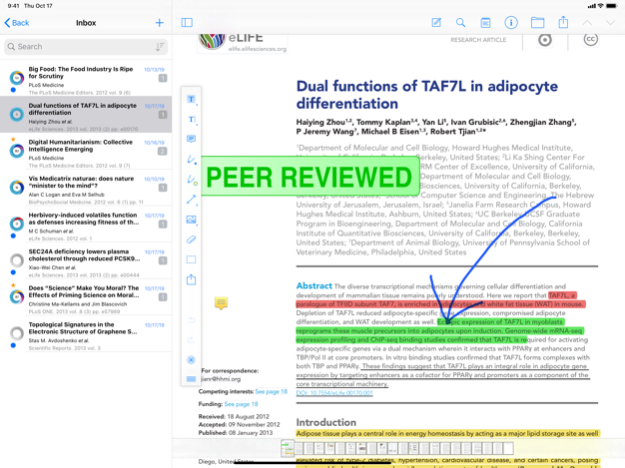
ris or similar) it would be a workflow dream.To import records from your selected references or the entire EndNote library, follow these steps. If DT could convey to my reference manager what the citation details are (using. That’s where Devonthink is so brilliant at capturing. Reference managers do a good job of downloading academic papers with DOI numbers, but they’re very poor in terms of curating anything else. web pages, tweets, media articles, and so on), followed by the export of citation details to that reference manager in order to cite the materials in manuscripts written by academics. Because that would allow greater versatility between curation of content outside a reference manager (i.e.
#READCUBE PAPERS 3 ZOTERO MANUAL#
ris (or similar) outputs for all file types (obviously with some manual adjustments as needed) it would be hands down the software of choice for (Mac user) academics globally. If Devonthink had the capacity to create. I have tried to do this with Bookends and then on forward to Papers, but it is a lengthy and convoluted process. ris for media articles and so on (for which I’ve curated pdfs) and export that information to ReadCube Papers. I would love it if Devonthink was able to create. I am familiar with Zotero but have been using ReadCube Papers (still in Beta), which is destined to be the very best reference manager going around. It’s amazing how many document creators don’t include clean document info, even, for a PDF. However, so much of what I work with comes from sources that do not facilitate this, I often end up making a manual entry anyway. I would say that in some cases with document acquisition it makes sense to collect documents into Zotero first from those sources that will support the transfer of citation meta data automatically. But I mostly do consulting writing and my readers want convenience rather than citation elegance. In fact, often the URL is often important for the convenience of readers, also for in-text citation. Zotero just gives me an easy way to do the first-time citation and build a project bibliography. Much easier to use the A-D formats and just do them as I’m writing.

I almost never do an end of project substitution of references for tags. I’ve always wished DT would save me a ton of effort by simply adding the reference management functionality. DT is my go-to for storage and retrieval over time. However, a reference is a likely to be in Scrivener if I’m note taking on something specific I’m writing. Zotero provides an easy way to share core resources with co-authors, and pull a formatted reference. I can fund the cloud space and work with groups.

This is because I need to work across platforms with people who may or may not invest in software. But particularly given the increasing role I see for Tinderbox in my curation of academic literature, I am largely switching to Bookends.
#READCUBE PAPERS 3 ZOTERO PDF#
Given the above, personally I have long used Zotero and in fact have developed or commissioned a number of integrations between Zotero and other apps (see Zotero - DT3 Import Working: A Customizable digital word processor for HTML, RTF, and PDF ). Mendeley, Endnote, and others are largely commercialized and not nearly responsive to customization/integration with other apps as Zotero or Bookends. If you get into detailed analysis of academic literature someday then Tinderbox is the utlimate tool in that regard for all the above reasons, Tinderbox integrates very well with Bookends but not quite as well with Zotero.

On top of that, Bookends has Applescript support so that makes it a lot easier to integrate with other apps. It is impossible to open the extraordinarily detailed Bookends documentation and not learn some new feature which you overlooked for years. While it is not open source, it has extremely nice capabilities to customize its functions. Most notably, Zotero has no Applescript support and thus a number of integrations are done instead via Bibtext and Terminal-type tools.īookends hits a really nice sweet spot as it is developed by a small (perhaps 1-person) shop clearly dedicated to this mission. Zotero is terrific because it is open-source and has a very active developer community.īut there are limits to how polished an app can be and how quickly new features can be added with an open-source app.


 0 kommentar(er)
0 kommentar(er)
